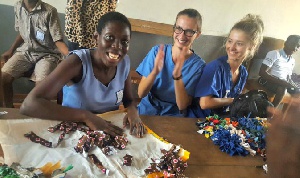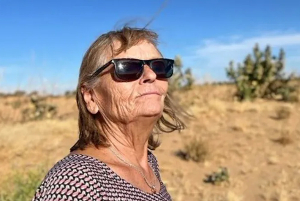Discussants at a recent forum on Sexual and Reproductive Health and Rights of Young People at the University of Cape Coast (UCC) organized by the Department of Population and Health in collaboration with the School of Medical Sciences of UCC and Center of Excellence in Reproductive Health Renovations, bemoaned the neglect of special schools in the country.
It emerged that successive governments have paid little or no attention to these institutions to the extent that they have been stifled with resources making the day-to-day running a major challenge despite the enormous contributions they make.
In the light of this, key stakeholders including Ghana Education Service (GES), Commission on Human Rights Administration Justice (CHRAJ), Gender and Children Social Protection, Domestic Violence and Victim Support Unit, Media and among others have appealed to the government to as matter of urgency ignore the one District one Factory policy and replace it with a District one Special School since majority of children with disabilities are not getting access to education.
Participants expressed sadness about the government’s neglect of Children with disabilities hence 35 Special Schools in this nation are not even resourced and only rely on international donors.
A Senior Lecturer of Department of Population and Health College of Humanities and Legal Studies at UCC, Dr. Kobina Donkoh who spoke to MyNewsGh.com’s reporter, Asana Gordon observed that the workshop would help the stakeholders to think about how best they can activate policies that have been acted on already and advocate for Sexual and Reproductive Health and Rights of Young People in these Special Schools.
“After the stakeholders’ workshop the idea or information that they have shared, each institution is going to implement or reverse what they have been doing in the past in order to meet the current strength of activities as far as reproductive health and rights of young people are the concern”, he stated. According to Population and Health Lecturer, 45% of Ghana’s population are young people and they have been neglected in areas of Sexual and Reproductive Health since such people need accurate information.
“If we don’t give them they may end up with peers or Internet and it will affect their future” he added.
Background
There is an estimated 2.5% of Ghanaians living with various forms of disabilities. Concern about the special need for care and protection for the disabled came to the fray in Ghana as far back as the 1960s after media reports and stories about the inhumane treatment PWDs were subjected to especially in rural areas begun gaining public attention.
Myths about persons born with specific defects were judged spirit children and automatically sentenced to be killed to pacify the Gods of their villages. Several persons with the disability were found chained, locked up and sometimes given concoctions to aid their quick death to avoid the stigma and burden of keeping them.
The Osagyefo Dr Kwame Nkrumah Conventions Peoples Party (CPP) administration set up a committee to investigate issues pertaining to disability in the country. One of the recommendations to the government at the time was for government to take full charge of the training, welfare and employment of persons living with disabilities. The committee also had a reintegration component to its recommendations which was linked directly to economic empowerment.
The idea was for government to provide a startup capital to set up these citizens and have the social welfare department, supervise their activities till they were fully independent. This saw a domination of ‘disabled’ teachers, teaching craft in elementary and middle schools. Several of these trained people were given jobs that matched with their set skills in public institutions.
Since then, Ghana has in the past recent years had several nongovernmental organizations and state recognized associations and authorities established to champion the course of people living with one or more forms of impairment. The most vibrant associations have done quite some substantial work in the areas of deafness/hearing impairments, mental/intellectual disabilities, blind/visual impairment and various forms of physical impairment.
Government has set in place a council for persons living with the disability, the mental health board and the ministry of gender, children and social responsibility to oversee and support the affairs of persons with disability. The country has also ratified the persons with disability act 2006 whose moratorium ends this year for full implementation.
In addition to this, Social Welfare offices have been established in all districts across the country, to do sensitization and registration of persons with disability. Government has also set aside 2% of the district assembly common fund to cater for persons with disability in the country. The president John Dramani Mahama in his 2016 state of the nation address also promised to lay before parliament a proposition to increase the disability share of the DACF to 3%. The social net pro-poor program, the Livelihood Empowerment against Poverty program established by the government of Ghana has also made provision for subsistence subventions for people who by reason of their extreme forms of disability are economically inactive.
Notwithstanding all of the above, a considerable portion of these investments and efforts have gone into sensitization and advocacy leaving the very important aspect of training and empowering the person with the disability to its sorry fate.
Perhaps because the majority of the very people appointed to make decisions have not had a feel of disability and the challenges a person with the disability must encounter in a country like Ghana to attain a decent training and be recognized enough to secure a source of livelihood.
Health News of Sunday, 24 June 2018
Source: mynewsgh.com
35 Special Schools in Ghana neglected
Entertainment












